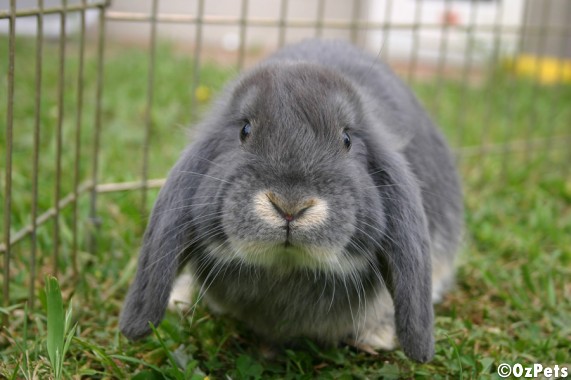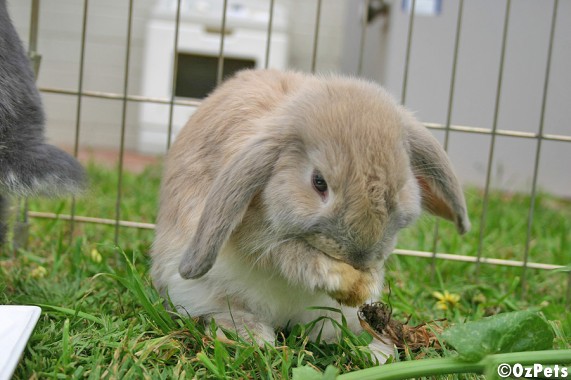
INTRODUCTION TO YOUR FIRST RABBIT, CARE ESSENTIALS
 Rabbits are popular household pets, although they do require more attention than other animals. To provide him with everything he deserves and needs, you must first understand the rabbit as a wild animal. As a result, you should have a thorough understanding of the rabbit's needs.
Rabbits are popular household pets, although they do require more attention than other animals. To provide him with everything he deserves and needs, you must first understand the rabbit as a wild animal. As a result, you should have a thorough understanding of the rabbit's needs.
In order to assist you and ensure that you have a happy rabbit at home, we will discuss how to care for a rabbit and everything that comes with it in this article.
Having a rabbit as a pet is a great idea
Many owners mistakenly assume that the rabbit is a rodent that, like any other, requires a cage, food, and nothing else owing to a lack of understanding. However, this is not the case. In reality, the rabbit's taxonomy is extremely different.
The rabbit is a lagomorph, a placental mammal that is distinguishable from rodents by having two pairs of continuously growing incisors, as well as other morphological and behavioral characteristics that need specific care, in contrast to hamsters and guinea pigs.
Aside from these obvious distinctions, we must remember that the rabbit is an animal that, when left free, runs all day, burrows, and likes the scent of plants and flowers.
Rabbits are also sociable animals who want affection and care from their owners. You will have an excellent buddy with long ears and silky fur at your side if you take care of him and devote enough time to him.
To begin with rabbit care, it is just necessary to point out that all of these factors are equally essential, and that devoting time to our pet will improve its longevity, quality of life, and happiness.
What is the average lifespan of a rabbit? Rabbits have a life expectancy of 6 to 8 years on average, although some can live up to 10 or 12 years. Everything will be determined by how we care for our rabbit, as well as its hereditary circumstances, as certain rabbit breeds live longer than others.
Rabbits have a life expectancy of 6 to 8 years on average, although some can live up to 10 or 12 years. Everything will be determined by how we care for our rabbit, as well as its hereditary circumstances, as certain rabbit breeds live longer than others.
Due to predators and untreated illnesses, wild rabbits have a lower life span of around 3 to 4 years.
Working on the nest
Your rabbit's nest will be the cage, where it will sleep and spend the majority of its time. As a result, we recommend that you give it a cage that is as large as possible so that it may move about freely.
Because the size of the cage is strongly connected to its quality of life, we recommend that it be at least 80 cm2 and kept in an area free of drafts and direct sunlight.
More smaller cages are available on the market, but we do not suggest them since they might induce anxiety. Because of their inherent demands for space, some people even allocate entire rooms to them.
Rabbits are sociable creatures, so if you want to keep a few of them, you'll need at least 4 m2 of room (as recommended by animal associations).
What should be in the rabbit's cage?
We'll have the following items inside the cage:
- A minimum of 500 mL bottle is required. We may also use a drinking bowl, which is a tiny bowl filled with water, but this is not recommended since it will get dirty quickly and require more regular cleaning. It will never run out of water.
Feed, hay, and daily portions of fruit and vegetables are placed in a dispenser or bowl. - They can use a tray or a corner to take care of their necessities while maintaining a clean and sanitary atmosphere. We would never use cat litter or anything similar (it might cause infections), however we can get a pressed litter from any pet store. It should be washed with a neutral soap on a regular basis.
- Although many rabbits do not grasp the function of the "burrow" that we wish to offer and end up discharging their needs there, bedding, cotton towel, or cloth are some of the items where the rabbit will rest at night.
- Wood for gnawing. They should never be treated since they have the potential to splinter and cause significant damage to the rabbit's intestines. We can use wood from fruit trees such as apple, orange, and other citrus fruits, or we can use untreated pine wood.
For our beloved friend, finding the proper cage and supplying it with all it requires is crucial. Rabbits can grow anxious if they are kept in a small place for an extended period of time.
Rabbits eat a variety of foods Some of the foods that rabbits can eat are:
Some of the foods that rabbits can eat are:
Apples, pears, peaches, melons, grapes, oranges, and other fruits (always without seeds) Give him little bits so he may start investigating which ones pique his interest the most.
Tomatoes (just the flesh, as the leaves are harmful to the rabbit), endive, cabbage, cucumber, spinach, carrots, beans, broccoli, or alfalfa are examples of vegetables. Try to figure out which ones they like; each rabbit is unique!
Although certain fruits are appropriate for rabbits, they should be given only on occasion since they contain a high amount of carbs (i.e. sugars), which might cause substantial weight gain.
Curiosities of the rabbit
- They like to be nocturnal.
- They should not be bathed!
- The rabbit's teeth never stop growing, that is why it is important that they can wear them down by nibbling on untreated wood.
- They need daily exercise.
- Like cats and dogs you should take him to the specialist from time to time.
- Check and weigh them weekly to make sure everything is correct.
Is it true that rabbits recognize their owners?
Rabbits are extremely clever creatures that can identify their owner, their name, and learn to perform multiple tasks in exchange for little pieces of fruit or vegetables.
Also, rabbits are highly social and like playing and being seen, so if you surround them with love and time, they will not only remember you, but will seek you out to play and ask for cuddles.
Rabbits also miss their owners if they are gone for a few days, demonstrating how much rabbits may love humans!
We hope that with this post, you have a better introduction to your first rabbit, and you can give him all the attention and care they need. In them, you will discover a very particular but very affectionate pet!